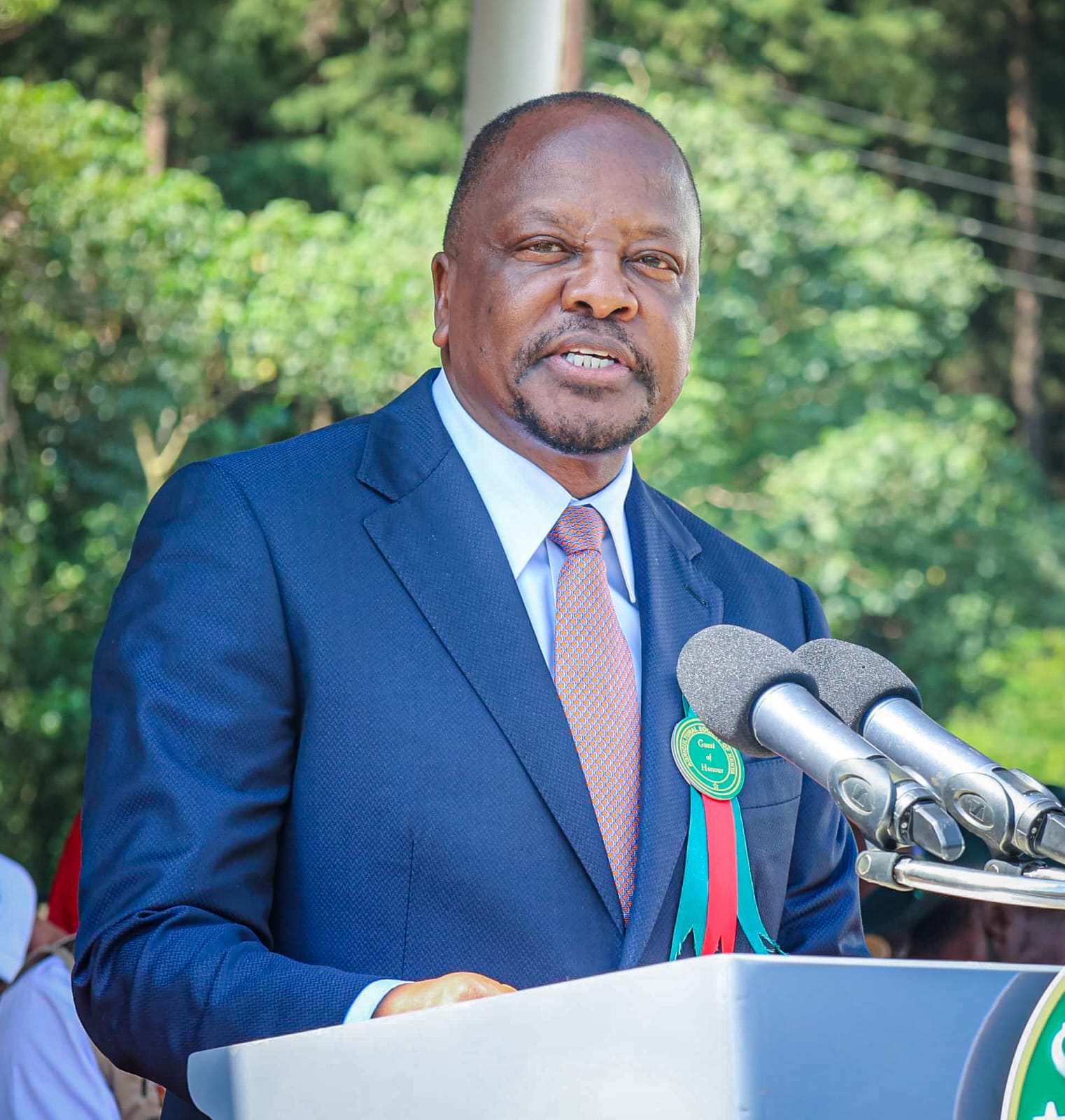

Kenya is staring at a possible spike in food prices and an acute rice shortage if the courts uphold a petition seeking to block the importation of 500,000 metric tonnes of duty-free rice, the ministry of agriculture has warned.
According to an affidavit by Agriculture and Livestock Development Cabinet Secretary Mutahi Kagwe, Kenya’s annual demand for rice stands at about 1.3 million metric tonnes (MT) against a domestic production of just 20 per cent.
This leaves a deficit of more than 80 per cent roughly one million metric tons that is bridged mainly through imports.
Kagwe is now warning that the current retail price of Grade one milled white rice has already surged to between Sh190 and Sh220 per kilogram, a steep rise from last year’s duty-free period average of Sh150 per kilogram.
If duty-free imports are blocked, he said, prices are likely to soar further, deepening the cost-of-living crisis.
His latest stance comes even as the Kerugoya court is set to give directions tomorrow, (15th August 2025 at 2.30pm), on whether to lift conservatory orders obtained by a farmers’ party challenging the Cabinet’s decision.
“Projections show that Kenya has a national requirement of about 1.5 million metric tons of rice for the year, or roughly 125,000 metric tons per month. The country will need about 625,000 metric tons between July and December 2025 alone,” said CS Kagwe.
Rice consumption per capita in 2025 is expected to reach 29 kilograms, with the population estimated at 54.79 million.
The affidavit further reveals that the Kenya National Trading Corporation (KNTC) has signed contracts with the Mwea Rice Growers Cooperative to mop up local stocks for onward distribution to government institutions.
However, the ministry argues that available stocks from farmers currently stand at only 20,000 (50kg) bags, against a projected demand of more than 350,000 bags for key government institutions.
Schools feeding programs under the ministry of education top the local demand for rice with 130,000 bags, it is followed by special programs requiring 90,000 bags, state department for correctional services – 60,000 bags.
The Kenya Defence Forces will require 40,000 bags, while other agencies such as the Administration Police, General Service Unit, National Youth Service, and Kenya Police Service also have substantial rice needs.
“The importation is necessary to stabilize prices and avert a potential food crisis,” said Kagwe. “The balance has traditionally been bridged through imports. However, recent global supply disruptions and price shocks have hindered access, disproportionately affecting low-income households.”
Kagwe is insisting that the move will not harm Kenyan farmers but will instead stabilise prices and cushion households from soaring food costs.
The ministry hold that since 2020 it has entered into binding framework agreements with rice farmers and cooperatives in Mwea, Kano Plains, Ahero, Lower Kuja, Bunyala and Bura to secure markets for their produce.
Kagwe disclosed that a 2020 presidential directive designated the Kenya National Trading Corporation (KNTC) as the lead agency to mop up excess locally produced rice for supply to government institutions, a policy that has since paid Mwea farmers Sh2.6 billion for 18,500 tonnes of pishori rice and another Sh948 million to Sindano rice farmers for 7,900 tonnes.
He stressed that over 95% of imported rice is non-basmati and therefore does not compete with the high-value pishori grown locally, which targets a niche market.
“Previous importations have not depressed prices. In fact, they have stabilised them,” Kagwe said, warning that without imports, shortages could push consumers to maize, wheat and potatoes, triggering a chain reaction of food price hikes.















